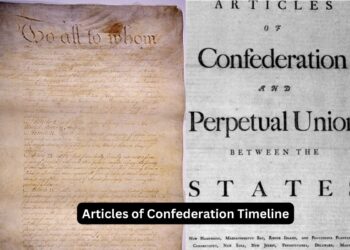Introduction to Plato’s “Apology”
Apology By Plato Summary And Themes Plato’s Apology is one of the most well-known works in Western philosophy. It is a recounting of Socrates’ defense speech during his trial in Athens, where he was charged with impiety and corrupting the youth. The Apology is not an actual apology in the modern sense of the word, but rather a defense of Socrates’ philosophy and way of life. The text presents Socrates as a figure who is committed to truth and wisdom, even in the face of death.
In 399 BCE, Socrates was put on trial in Athens, accused of corrupting the youth and introducing new gods, an offense against the gods of the city. The Apology represents Socrates’ defense of his life’s work and philosophy, which he views as a divine mission. Through his speech, he defends his right to practice philosophy and challenges the very foundations of Athenian society, particularly the superficial nature of the city’s political, legal, and religious systems.
The Apology is an important philosophical text for several reasons. It showcases Socrates’ commitment to intellectual integrity and his role as a gadfly to the state of Athens, urging his fellow citizens to think critically and examine their beliefs. It also provides insight into Plato’s own philosophy, as the text is a product of his perspective on Socrates, the man, and his teachings.
Summary of Plato’s “Apology”
The Apology is divided into three main sections: the opening defense, the argument against the charges, and the sentencing. The text does not follow a formal court procedure but instead presents Socrates’ speeches as a form of philosophical dialogue in which he responds to accusations and challenges the jury’s views.
Read More
The Opening Defense
Socrates begins his defense by acknowledging that he is not a skilled orator and does not know how to give a rhetorical speech that would sway the emotions of the jury. Instead, he promises to speak the truth in a straightforward manner, adhering to his own principles. He starts by addressing the first accusation against him: that he corrupts the youth of Athens. Socrates admits that he has taught young people, but he argues that he is not intentionally corrupting them. Instead, he claims that his teaching encourages them to think critically and question authority, which may have led to their discontent with the status quo.
Socrates also addresses the second accusation—that he is impious, or that he does not believe in the gods recognized by the city of Athens. He denies this accusation, asserting that he does believe in gods, but his understanding of divinity may differ from conventional beliefs. He points out that his accusers are confused about his beliefs because they do not fully understand his philosophical methods.
Socrates then discusses his method of philosophical questioning, known as the Socratic method. He describes how he goes about questioning the supposed wisdom of others in the city, aiming to help people realize their ignorance. His approach is often unsettling for those in power, as he reveals that their knowledge is superficial or mistaken. Socrates compares himself to a gadfly, an annoying insect that stings a horse to get it to move. In this metaphor, the horse represents the state of Athens, and Socrates sees his role as provoking the city to think more deeply and become more just.
The Argument Against the Charges
Socrates argues that the accusations against him are the result of long-standing misunderstandings and misconceptions. He explains that the charges of corrupting the youth and impiety have been made by influential figures in Athens who view his philosophical activities as a threat to their authority.
He begins by addressing the charge of impiety. Socrates explains that he has always believed in gods and that his beliefs are consistent with the traditions of the city. He suggests that his accusers have misunderstood his relationship with the divine, pointing out that he has a spiritual voice, or daimonion, that guides his actions. This inner voice, which Socrates claims to hear during moments of decision, is often interpreted as a divine sign or warning. Far from being impious, Socrates argues that this voice affirms his commitment to a higher moral order.
As for the charge of corrupting the youth, Socrates argues that he could not have intentionally done so, as no one would harm themselves deliberately. If he had truly been corrupting the youth, he would have been aware of it, and therefore would not have done so intentionally. He suggests that the young men who follow him are merely being exposed to different ideas, which may challenge the norms of Athenian society but are not inherently harmful.
Socrates further defends himself by highlighting the contradictions in the accusations. He points out that if he truly corrupted the youth, he should have done so out of malice or ignorance, but there is no evidence that he has done so deliberately or consistently. Instead, Socrates argues that his teaching is aimed at helping people think critically and question assumptions.

Socrates’ Defense of Philosophy
One of the most important parts of Socrates’ defense is his discussion of the role of philosophy in society. He claims that he has been guided by a divine mission to engage in philosophical questioning. According to Socrates, philosophy is the pursuit of truth and wisdom, and he believes it is essential for individuals and society to engage in constant self-examination. This constant questioning of one’s beliefs and assumptions, Socrates argues, is the key to living a virtuous and meaningful life.
Socrates’ defense of philosophy is rooted in the idea that true knowledge is not about memorizing facts or adhering to societal norms but is about recognizing one’s own ignorance. He famously claims, “The only true wisdom is in knowing you know nothing.” This statement encapsulates his view that the process of inquiry and questioning is far more valuable than claiming to possess absolute knowledge.
Socrates argues that philosophy is a service to the city, not a subversive force. He does not seek power or wealth, but instead, he pursues wisdom in the belief that it is in the best interest of Athens to have citizens who are capable of critical thought and self-awareness. He compares himself to a doctor who treats the soul, aiming to cure the city of its intellectual and moral ailments.
Read More
Socrates’ Fate: The Verdict and Sentencing
After Socrates finishes his defense, the jury deliberates, and he is found guilty by a narrow margin. Socrates is given the opportunity to propose his own punishment. He suggests that he should be rewarded for his service to Athens and be given free meals for life, as a sort of honor for his work. However, Socrates acknowledges that he is not expecting to be acquitted, and he does not propose a traditional defense or plea for mercy.
When the jury votes for his death, Socrates remains calm and unrepentant. He argues that death should not be feared because it is either a peaceful end to life or a transition to another form of existence. He claims that the fear of death is irrational, as no one knows what comes after death. For Socrates, his mission is more important than his own life, and he is willing to face death with dignity and resolve.
Key Themes in Plato’s “Apology”
- The Role of Philosophy in Society
One of the central themes of the Apology is the importance of philosophy in society. Socrates argues that philosophy is not just a theoretical pursuit but a practical way of life that helps individuals achieve moral and intellectual clarity. Philosophy is essential to the health of the state, as it encourages citizens to question their beliefs, examine their actions, and live virtuous lives. Socrates’ defense of philosophy as a vital social service is one of the key messages of the text. - The Nature of Knowledge and Wisdom
The Apology explores the nature of knowledge and wisdom, particularly through Socrates’ famous declaration, “I know that I know nothing.” Socrates emphasizes the importance of intellectual humility and the recognition of one’s own ignorance. True wisdom, according to Socrates, lies in the constant pursuit of knowledge and the willingness to question even the most deeply held beliefs. - The Importance of Virtue
Throughout his defense, Socrates stresses the importance of virtue and moral integrity. He claims that living a virtuous life is more important than seeking wealth, power, or fame. Socrates argues that a good life is one in which individuals seek to improve their souls through knowledge and self-examination. His commitment to virtue is central to his defense of philosophy and his willingness to face death rather than abandon his principles. - The Concept of the Divine and the Daimonion
Another significant theme in the Apology is the role of the divine in Socrates’ life. Socrates frequently refers to his inner voice, the daimonion, which he believes guides his actions and decisions. The daimonion is often interpreted as a divine or spiritual voice that warns Socrates against wrongdoing. Socrates argues that his philosophical mission is divinely ordained and that he is merely following the will of the gods. - Justice and the Rule of Law
The Apology also addresses the concept of justice, particularly in the context of Athenian law. Socrates respects the laws of Athens and believes that he has a duty to abide by them, even if he disagrees with the outcome of his trial. He argues that the unjust charges brought against him should not lead him to act unjustly in return. Socrates’ respect for justice and the rule of law, even in the face of an unjust trial, highlights his commitment to living a morally upright life. - Courage in the Face of Death
Socrates’ acceptance of the death sentence demonstrates his courage and commitment to his philosophical principles. He does not fear death because he believes that it is either a peaceful rest or a transition to another form of existence. Socrates’ willingness to face death rather than renounce his philosophy is a profound expression of his integrity and moral fortitude. - The Critique of Athenian Society
Throughout his defense, Socrates subtly critiques Athenian society, particularly its superficial understanding of knowledge and virtue. He argues that many of the city’s most respected figures are actually ignorant, and that the public is more interested in wealth, power, and popularity than in true wisdom. Socrates’ criticism of the state is a call for a more thoughtful and virtuous society, one in which citizens are committed to self-improvement and the pursuit of truth.Apology By Plato Summary And Themes
Conclusion
Plato’s Apology remains one of the foundational texts in Western philosophy. Socrates’ defense of his life’s work and his commitment to philosophy, virtue, and truth in the face of death make the Apology a powerful exploration of moral integrity, intellectual humility, and the nature of knowledge. Through Socrates’ trial, Plato highlights the tension between individual conscience and societal norms, and the philosophical commitment to truth even when it comes at great personal cost. Socrates’ legacy, as presented in the Apology, continues to inspire philosophers and thinkers to this day, reminding us of the importance of questioning, seeking wisdom, and living a life dedicated to virtue and knowledge.
Read More
(FAQ)
1. What was Socrates accused of in the Apology?
Socrates was accused of impiety (not believing in the gods of Athens) and corrupting the youth. These accusations were partly the result of Socrates’ unconventional way of questioning societal norms and encouraging young people to think critically about traditional beliefs.
2. How does Socrates defend himself against the charge of impiety?
Socrates defends himself by arguing that he believes in gods but in a way that differs from the conventional understanding. He also claims that his actions are guided by a divine voice, the daimonion, which is a form of divine guidance.
3. What is the significance of the daimonion in the Apology?
The daimonion is a key aspect of Socrates’ belief in divine guidance. He claims that this inner voice helps him make moral decisions and prevents him from acting unjustly. It reinforces his view that his philosophical mission is divinely ordained.
4. What does Socrates mean when he says, “I know that I know nothing”?
Socrates’ famous statement reflects his belief in intellectual humility. He acknowledges that human knowledge is limited, and true wisdom comes from recognizing one’s own ignorance. This humility drives Socrates’ philosophical inquiries and his commitment to questioning the world around him.
5. How does Socrates view the role of philosophy in society?
Socrates sees philosophy as a vital social service. He believes that philosophers help the state by encouraging citizens to engage in self-examination, question assumptions, and pursue knowledge and virtue. Philosophy, for Socrates, is a means of achieving moral improvement and contributing to a just society.
6. Why does Socrates not fear death?
Socrates does not fear death because he believes it is either a peaceful rest or a transition to another form of existence. He argues that death is not something to be feared, and his commitment to philosophy and virtue is more important than preserving his own life.
7. How does Socrates criticize Athenian society in the Apology?
Socrates criticizes Athenian society for valuing wealth, power, and popularity over wisdom and virtue. He argues that many of the city’s most respected figures are actually ignorant, and that the public is more concerned with superficial matters than with the pursuit of truth.
Read More

















